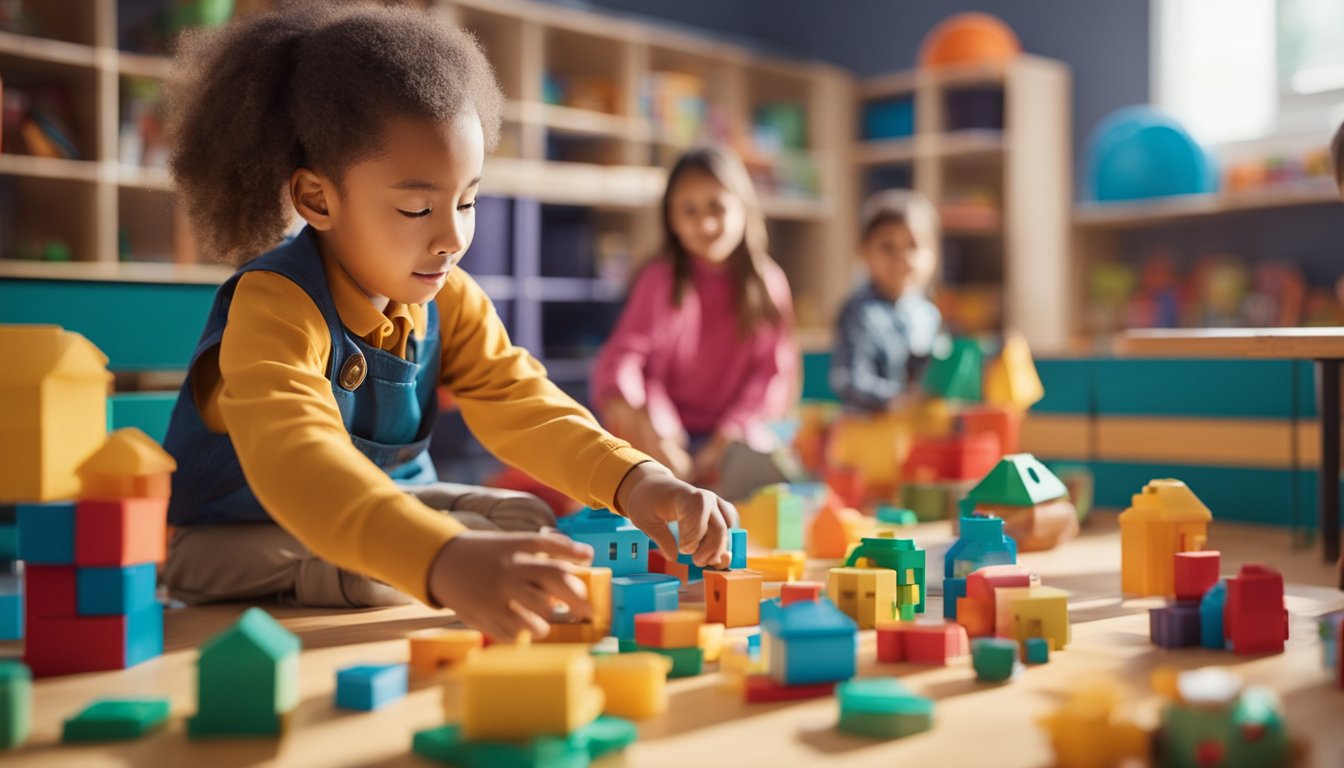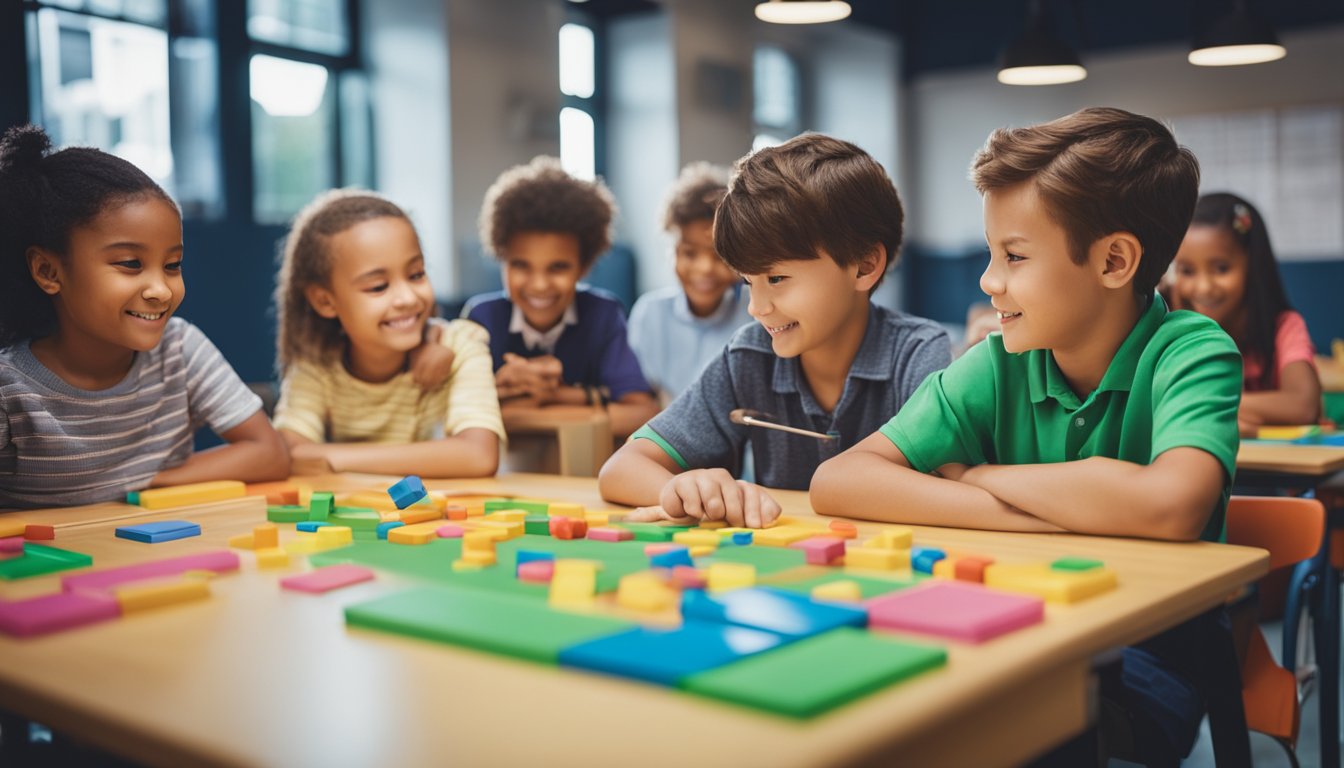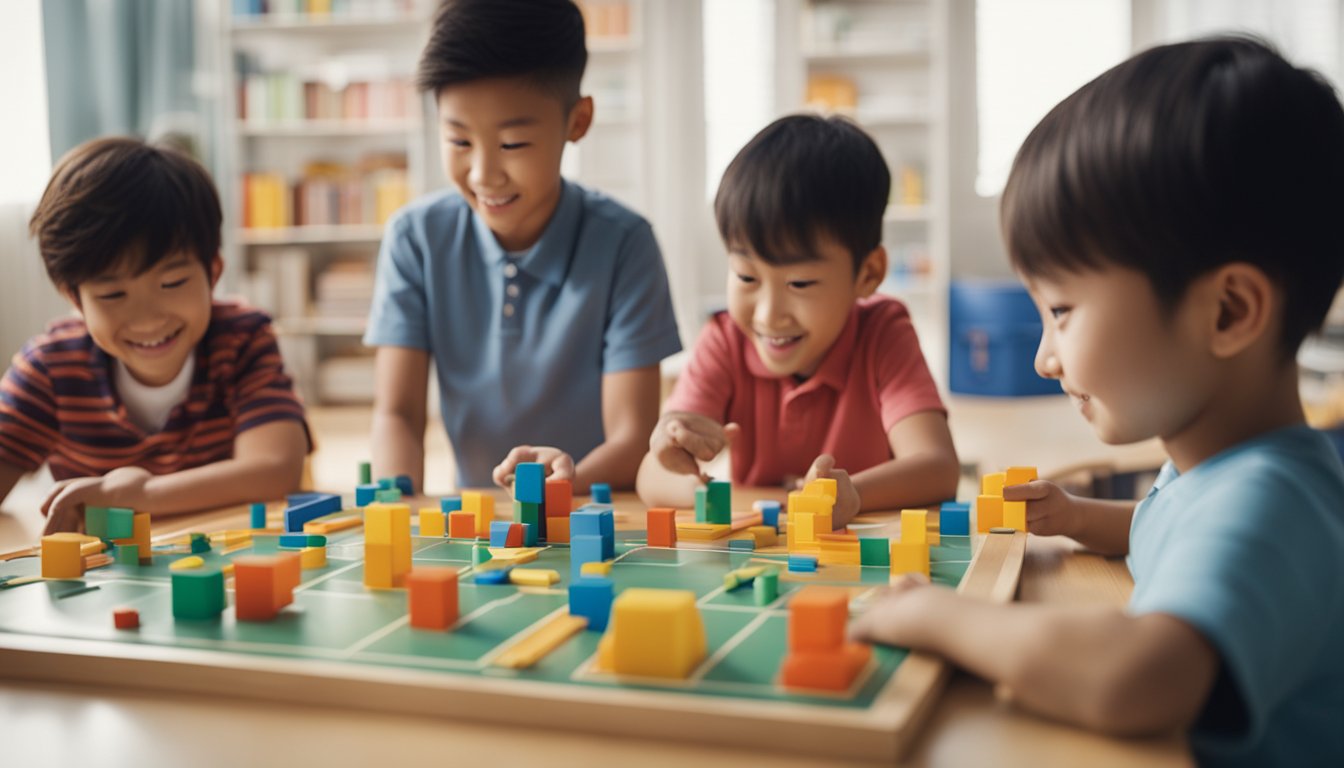Late updated: 19 Nov 2024 11:11
Written by:
The Importance Of Educational Games For Children: Enhancing Learning Through Play
In an age where technology and education increasingly overlap, educational games stand out as a dynamic way to engage children and foster development. These games seamlessly integrate learning with play, making them an exceptional tool for nurturing a child's cognitive abilities. The most compelling advantage of educational games is their capacity to enhance critical thinking and problem-solving skills, all while capturing a child's interest and encouraging active participation.

As we delve into the world of educational games, it becomes clear that their benefits extend far beyond mere entertainment. These games support children in developing essential life skills, such as teamwork, creativity, and decision-making. By encouraging children to think creatively and critically, games provide a unique platform for experiential learning that traditional methods may not offer as effectively.
For educators and parents keen on enriching the learning environment, understanding how to incorporate games into the classroom or home setting can be transformative. We're in a unique position to leverage these tools to foster a passion for learning, enabling children to thrive in an engaging and supportive educational landscape.
Key Takeaways
- Educational games enhance critical thinking and problem-solving skills.
- They create an engaging learning environment that fosters creativity.
- Game-based learning supports experiential learning effectively.
The Role of Educational Games in Enhancing Cognitive Skills
Educational games play a crucial role in developing children's cognitive skills by promoting critical thinking, problem-solving, engagement, and social learning. These games offer structured environments where children can explore, learn, and grow their cognitive abilities interactively.
Fostering Critical Thinking and Problem-Solving
Educational games are excellent tools for cultivating critical thinking and problem-solving skills. Through engaging scenarios, children are encouraged to think analytically and make informed decisions. These games often present challenges that require players to strategise, hypothesise, and adjust their approaches.
The nature of game-based learning allows players to experiment with different solutions without the fear of failure. This encourages risk-taking and exploration, which are essential components of problem-solving. By consistently providing feedback, educational games guide players in refining their strategies, thus honing their cognitive abilities.
Boosting Engagement and Intrinsic Motivation
One of the most significant advantages of educational games is their ability to boost engagement and foster intrinsic motivation. The interactive and dynamic nature of games captures children's attention more effectively than traditional learning methods.
These games often incorporate elements such as rewards, progress tracking, and goal setting. Such features not only motivate learners to achieve specific objectives but also instil a sense of accomplishment. Players become motivated by the challenges and successes within the game, fostering a love for learning that extends beyond the virtual world.
Encouraging Teamwork and Social Development
Teamwork and social development are essential aspects of educational games, especially those designed for multiplayer settings. Children often need to collaborate to achieve common goals, which teaches them the importance of cooperation and effective communication.
Collaborative educational games encourage players to share ideas, develop empathy, and negotiate solutions. This type of social and emotional learning helps children understand differing perspectives and build social skills in a safe environment. Moreover, these games can also enhance emotional intelligence by allowing players to process and manage their emotions during gameplay.
Through these experiences, children learn to balance competition and collaboration, preparing them for real-world social interactions.
Implementing Game-Based Learning in the Classroom Environment

Incorporating games into educational settings can be transformative, helping students meet learning objectives while enjoying an interactive experience. Our approach centres on integrating games seamlessly with curricula, leveraging technology, and using gamification for assessment and feedback.
Integrating Games with Learning Objectives and Curriculum
Aligning games with learning goals ensures educational games reinforce the concepts we aim to teach. It's essential that each game clearly links to curriculum targets, enhancing the educational value. Educational games like Minecraft: Education Edition can be customised to support lessons in subjects such as science and maths, allowing students to explore and experiment within a virtual world that solidifies understanding.
When planning lessons, starting with the end goals in mind helps ensure games contribute to desired educational outcomes. Teachers can integrate empathy and critical thinking development by selecting games that foster social skills and perspective-taking. Scheduling regular check-ins allows us to adapt game content based on student progress, maintaining alignment with educational milestones.
Using Technology and Digital Resources
Digital platforms and tools are vital in delivering a smooth game-based learning experience. Classrooms equipped with tablets, computers, or interactive whiteboards enable seamless integration of educational games. By utilising these resources, teachers can create an environment where technology supports and elevates the learning experience. This also includes ensuring all students have access to the necessary devices, promoting equity in learning opportunities.
We can choose from a plethora of online platforms that host educational games designed for specific subjects or skills. These platforms often provide teacher tools to manage lesson integration and track student activity. Leveraging cloud-based resources allows us to easily share games and resources with students, facilitating both individual and collaborative learning experiences.
Assessment and Feedback Through Gamification
Gamification transforms assessment into an engaging activity by incorporating elements like points, badges, and leaderboards. This approach makes feedback more interactive and drives students' motivation to achieve their goals. Games like Minecraft: Education Edition provide built-in assessment tools that help us monitor and evaluate student performance in real-time.
Feedback in gamified environments should be immediate and constructive, guiding students towards improvement. Teachers can create in-game challenges that require students to showcase knowledge before advancing, turning assessment into an ongoing, natural part of the learning process. Additionally, involving students in creating their own goals fosters ownership and encourages reflective learning, enhancing the effectiveness of feedback mechanisms.
Frequently Asked Questions

In this section, we explore the role of educational games in children's education. These games are integral to enhancing engagement and helping children meet various developmental milestones through interactive learning experiences.
Why are games considered crucial in a child's education?
Games offer an interactive platform where children can learn through play, making education both effective and enjoyable. By using games, we can provide a dynamic learning environment that fosters curiosity and exploration, essential components of a robust educational experience.
What benefits do children gain from educational gaming?
Children gain numerous benefits from educational gaming, including improved cognition, increased motivation to learn, and better retention of information. These games are designed to enhance problem-solving skills and encourage creativity, providing a safe space for children to experiment and learn from their interactions.
How do educational games enhance student engagement in the classroom?
Educational games captivate children's attention by integrating fun with learning tasks, leading to higher engagement levels. By incorporating storytelling, challenges, and rewards, these games maintain students' focus and interest, which is instrumental in sustaining prolonged educational activities.
What objectives do educational games aim to achieve for children?
The primary objectives of educational games are to impart specific knowledge, develop critical skills, and enhance overall academic performance. Through structured gameplay, children can meet learning milestones and gain a deeper understanding of varied subjects in an engaging manner.
In what ways do educational games contribute to a child's developmental milestones?
Educational games play a vital role in cognitive, social, and emotional development. They encourage interaction, cooperation, and communication among peers. Moreover, these games aid in building self-regulation and problem-solving abilities, key milestones in a child's growth.
Can educational games effectively improve learning outcomes for children?
Yes, educational games have been shown to significantly improve learning outcomes by making lessons more memorable and enjoyable. They can boost motivation and facilitate long-term retention of knowledge, leading to a rich and fulfilling educational journey for children.
